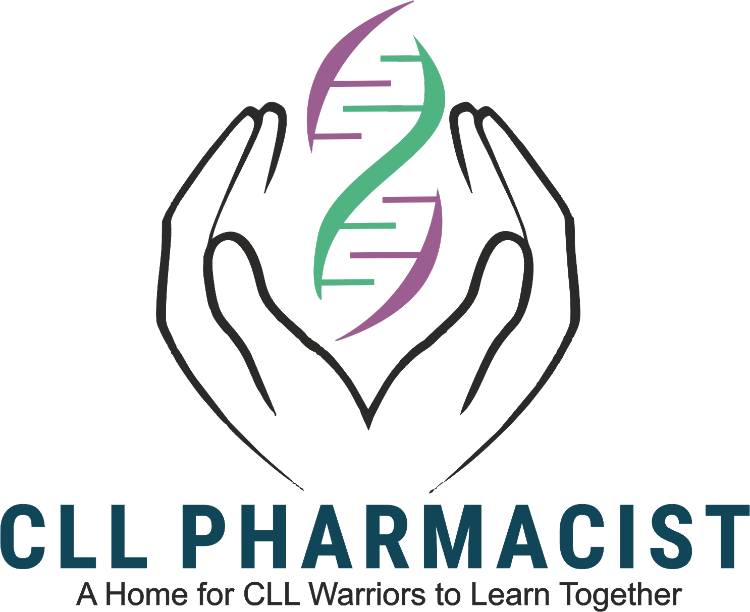CLL Research: Phase 3 UNITY-CLL Study Shows Ublituximab Plus Umbralisib (U2) is Superior to Chemo
At the American Society of Hematology Annual Meeting in December 2020, Professor John G. Gribben, M.D., DSc, FRCP, FMedSci, FRCPath presented the results from the Phase 3 UNITY-CLL study. The title of his oral presentation was - Umbralisib Plus Ublituximab (U2) Is Superior to Obinutuzumab Plus Chlorambucil (O+Chl) in Patients with Treatment-Naïve (TN) and Relapsed/Refractory Chronic Lymphocytic Leukemia (CLL): Results from the Phase 3 UNITY-CLL Study. Professor Gribben is the Director of the Experimental Cancer Medicine Center and Stem Cell Transplantation at Saint Bartholomew’s Hospital, Queen Mary’s School of Medicine, University of London. Dr. Gribben is a noted CLL specialist who is active in CLL research and frequently presents at conferences and symposia. Professor Gribben was the global chair of this multi-site international clinical trial.
Background - Phase 3 UNITY-CLL Study
Bruton’s tyrosine kinase (BTK) inhibitors such as ibrutinib (Imbruvica®), acalabrutinib (Calquence®), and zanabrutinib (Brukinsa™) along the b-cell lymphoma-2 (BCL-2) inhibitor venetoclax (Venclexta®) have dramatically changed the treatment landscape of CLL. However, not every CLL patient is a candidate for these agents, and resistance has developed to both these drug classes. Dr. Gribben believes that phosphoinositide 3-kinase-delta (PI3Kδ) inhibitors offer a distinct mechanism of action compared to BTK and BCL-2 inhibitors and that they have demonstrated promising activity in the relapsed/refractory (R/R) CLL setting.
Umbralisib (UKONIQ™) is the first and only orally administered inhibitor of both PI3Kδ and casein kinase-1-epsilon (CK1ε). The PI3Kδ signaling pathway plays a role in rapid cell growth (proliferation), malignant cell survival and migration, and intracellular (within the cell) transport. PI3K inhibitors are a class of medicines that inhibit one or more of the phosphoinositide 3-kinase enzymes. By inhibiting these enzymes, PI3K inhibitors cause cell death, slow the proliferation of malignant cells, and interfere with several signaling pathways. At this time, UKONIQ™ is FDA-approved for R/R marginal zone lymphoma (MZL) and R/R follicular lymphoma (FL). TG Therapeutics, the manufacturer of both UKONIQ™ and ublituximab, completed the Biologics License Application for the combination as a treatment for patients with CLL on March 29, 2021. Umbralisib demonstrates improved selectivity for the delta form of PI3K compared to the currently approved idelalisib (Zydelig®) and duvelisib (Copiktra®). Improved selectivity is generally associated with less-off target effects, which are often the cause of side effects.
Ublituximab is a glycoengineered anti-CD20 monoclonal antibody. Anti-CD20 monoclonal antibodies (mAbs) are used to achieve B cell depletion and are used to treat B cell proliferative disorders, including non-Hodgkin’s lymphoma (NHL) and chronic lymphocytic leukemia (CLL). Rituximab and obinutuzumab are FDA-approved anti-CD20 mAbs frequently used in combination with targeted agents or chemotherapy to treat CLL. Ublituximab targets a unique antigen (epitope) on the CD20 antigen compared to the current anti-CD mAbs. Ublituximab is being studied in combination with other drugs such as ublituximab plus ibrutinib compared to ibrutinib alone.
Methods - Phase 3 UNITY-CLL Study
The Phase 3 UNITY-CLL study (NCT02612311) is a global, randomized-control clinical trial that compares the combination of ublituximab plus umbralisib (U2) to obinutuzumab (Gazyva®) plus chlorambucil. This study included patients with both treatment naïve and relapsed or refractory chronic lymphocytic leukemia (CLL). When this trial began, there were four arms:
1. ublituximab alone,
2. umbralisib alone,
3. ublituximab plus umbralisib (U2),
4. or, obinutuzumab plus chlorambucil.
Later, after data established that the combination of ublituximab plus umbralisib (U2) was superior to either agent alone, patients were then equally randomized to the U2 and O+Chl arms.
U2 Participants took 800mg of umbralisib by mouth once a day until disease progression or removal from treatment for other reasons. Patients received Ublituximab intravenously (IV). In cycle one, the dose was 150mg on day one, 750mg on day two, and 900mg on days 8 and 15. In cycles two through six, patients received 900mg on the first day. After cycle six, 900mg of ublituximab was given on the first day of every third cycle.
In the Obinutuzumab plus chlorambucil arm, patients took a weight-based dose of chlorambucil by mouth on day 1 and 15 cycles 1-6. The amount was 0.5mg per kg (2.2 pounds) of weight. For an average-sized adult with a weight of 70kg (154 pounds), the dose would be 35mg. Patients received obinutuzumab by IV infusion. In the first cycle, doses were 100mg on the first day, 900mg on the second day, and 1000mg on days 8 and 15. For cycles 2 through 6, the dose was 100mg on day one.
The primary endpoint (goal) was to determine the difference in progression-free survival PFS between ublituximab plus umbralisib (U2) patients and O+Chl patients. An independent review committee (IRC) evaluated PFS. The secondary endpoints (goals) of the overall response rate (ORR), rate of complete response (CR), rate of undetectable minimal residual disease (uMRD), and duration of response (DOR). The IRC also evaluated assessed safety from the first dose until 30 days after the last dose. They evaluated the contribution of umbralisib and ublituximab to the U2 combination by evaluating the early single-agent arms.
The Phase 3 UNITY-CLL study included 421 patients enrolled between February 2016 and October 2017. The table below highlights study participant characteristics. The demographics between treatment arms were well balanced.
Results - Phase 3 UNITY-CLL Study Shows Ublituximab Plus Umbralisib (U2) is Superior to Chemo
Sixty-two percent (62%) of U2 patients displayed durable responses at 2-years. The median treatment duration was 23 months (range 0.1-49) for the U2 cohort and five months (range 0.1-7) for the O+C arm.
Conclusions
UNITY-CLL is the first randomized Phase 3 study in CLL of a PI3Ki vs. chemoimmunotherapy and the first randomized study of a PI3Ki in treatment-naïve CLL. The combination of ublituximab plus umbralisib (U2) has shown synergistic activity in patients with chronic lymphocytic leukemia (CLL) compared with standard of care chemoimmunotherapy irrespective of any prior treatment.
The U2 regimen has a favorable safety profile with lower rates of immune-mediated side effects associated with other PI3K agents. These immune-mediated toxicities include diarrhea, colitis, pneumonia, and liver toxicity.

